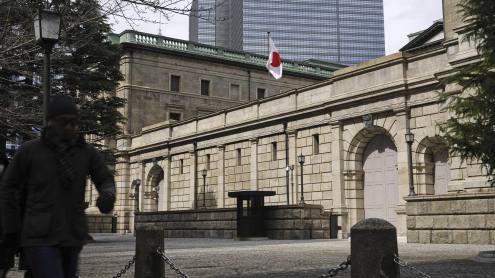In terms of economic growth, Vietnam has undoubtedly been south-east Asia’s star performer in recent years. Foreign investors have been taking note: in the first half of 2005, foreign direct investment inflows doubled. For the banking and financial services sector, the prospect of World Trade Organization (WTO) entry has also had a galvanising effect. Recent years have seen more far-sighted local private banks embark on fairly rapid growth trajectories, in a bid to establish the kind of sufficiently robust portfolios, brands and branch networks that should allow them to compete in a much less protected marketplace; or at least make them attractive acquisition targets.
The State Bank of Vietnam has also been encouraging local banks to look at diversifying away from plain vanilla lending and deposit-taking activities to new products and services where their in-depth market knowledge may give them an edge over far larger foreign banks. A few local banks have even begun to offer asset management and other private banking services, aimed at the country’s burgeoning nouveau riche. Deposits in Ho Chi Minh City were up 23% in the first half of 2005, reflecting both urbanites’ growing affluence and their increasing willingness to trust and use banks as a means of saving.
Equity stakes
Two of Vietnam’s most innovative local banks have also recently inked deals that saw major international commercial banks taking an equity stake in them for the first time. First, Sacombank announced that ANZ Bank would be taking a 10% stake for roughly $27m. Then Asia Commercial Bank unveiled a deal with Standard Chartered Bank, which acquired 8.6% for around $22m. Both local banks have had foreign investors, including the International Finance Corporation, for some time.
Foreign share ownership in local banks is cumulatively capped at 30% of total shares, with no single foreign investor permitted more than 10%. However, the entry of major commercial banks marks an important departure. Both local banks recognise that, besides the welcome injections of equity capital, foreign banks can bring the technology and expertise needed to compete in a post-WTO environment.
Sacombank and Asia Commercial Bank are also widely expected to list their shares formally on the local fledgling stock market in the next year or so, following the State Bank of Vietnam’s recent decision to permit local banks to list, subject to meeting set criteria.
Shares in these and other private banks currently trade only in the informal and relatively illiquid ‘grey market’. A formal listing could revive Ho Chi Minh City’s stock exchange, which has been drifting for more than a year. Just 29 firms are listed, with a market capitalisation (excluding bonds) that remains below $400m. The bond market is valued at about $1.5bn, with issuers limited to the national government and some state-related organisations and banks.
It is unclear whether any of the other foreign banks active in Vietnam – such as Citibank, DBS of Singapore, HSBC and Deutsche Bank – will seek to strike similar investment deals with local banks. Although Vietnam has about 30 or so joint stock banks, only a handful could be regarded as attractive prospects.
Meanwhile, HSBC – following ANZ Bank’s example – announced in May that it had established a presence in Can Tho, a city in the Mekong Delta. The gradual shift of banking activity beyond the twin hubs of Ho Chi Minh City and Hanoi illustrates the growing demand for financial services in the economy.
State-owned giants
Notwithstanding the increasing activity of local private banks and foreign bank branches, Vietnam’s banking sector remains dominated by four state-owned commercial banks. The largest of these, Vietcombank, has been the focus of some investor attention since the government announced that it, along with the much smaller Mekong Housing Bank, would be ‘equitised’ (the local term for a form of partial privatisation). Since the first announcement, however, the planned equitisation of mighty Vietcombank has met with several delays, a lack of clarity on how much of the bank is to be divested, and how precisely it is to be done. The latest statements suggest that Vietcombank will first issue 1000bn dong ($63m) in convertible bonds (to local investors only), probably in September, with the issuance of shares possibly following some time in 2006.
The government appears keen to see more equitisations of state-owned firms and banks, either through formal auctions or as initial public offerings. A second stock exchange recently opened in Hanoi, to twin with the securities market operating in Ho Chi Minh City since mid-2000, partly to serve this equitisation role. But, as with its elder brother, the Hanoi stock market has thus far got off to a slow start.











